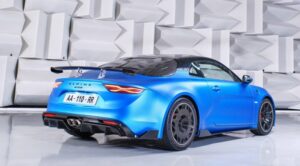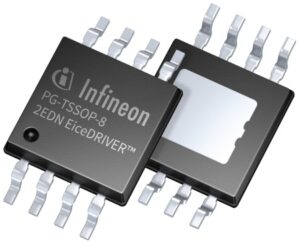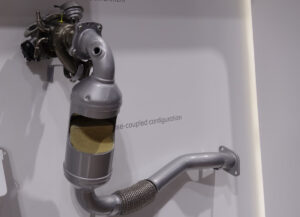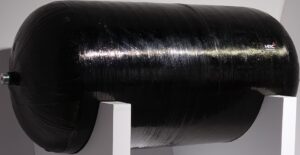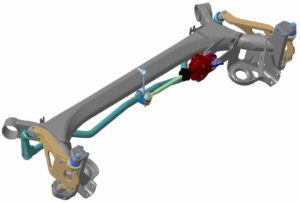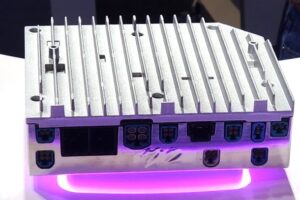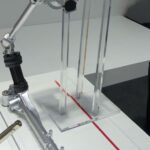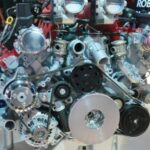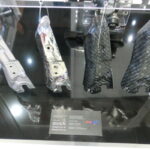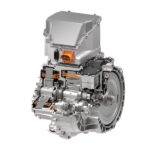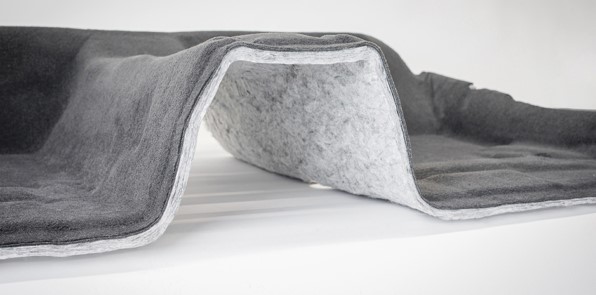
Autoneum’s new environmentally friendly carpet systems made of 100% polyester feature a high content of recycled raw materials. Their zero waste and latex-free manufacturing process also significantly reduces CO2 emissions as well as water and energy consumption. Additionally, by offering a fully recyclable carpet system, Autoneum is already supporting customers in an area whose importance for an improved sustainability performance of cars will increase even further in future: the end-of-life recycling of electric vehicles.
While the interior of cars with combustion engines is usually shredded together with other parts – mainly the vehicle body –, thus making the reclaiming of textile products such as carpets practically impossible, e-cars open up new perspectives for end-of-life recycling. Since the battery has to be removed at the end of vehicle life in order to be recycled or disposed of properly, the demand for easy-to-dismantle products, especially carpets, for the interior of electric vehicles is increasing. However, such easily removable components not only facilitate access to the battery, but they can also be individually recycled at the end of product life, enabling car manufacturers to tap into previously unexploited sustainability potential.
The 100% polyester carpets build on the existing lightweight and particularly sustainable Autoneum Pure technologies: the carpet surface, for example, is made of Di-Light or Relive-1, while Hybrid-Acoustics PET is used for the decoupler. Thanks to Autoneum’s innovative alternative backcoating (ABC) process, which uses a thermoplastic adhesive instead of latex, the production of the new monomaterial needlepunch and tufted carpets also requires significantly less energy and no water at all.
Autoneum’s sustainable tufted carpet system made of 100% polyester is already in development for an electric model of a German vehicle manufacturer that will be available in Europe and Asia.

